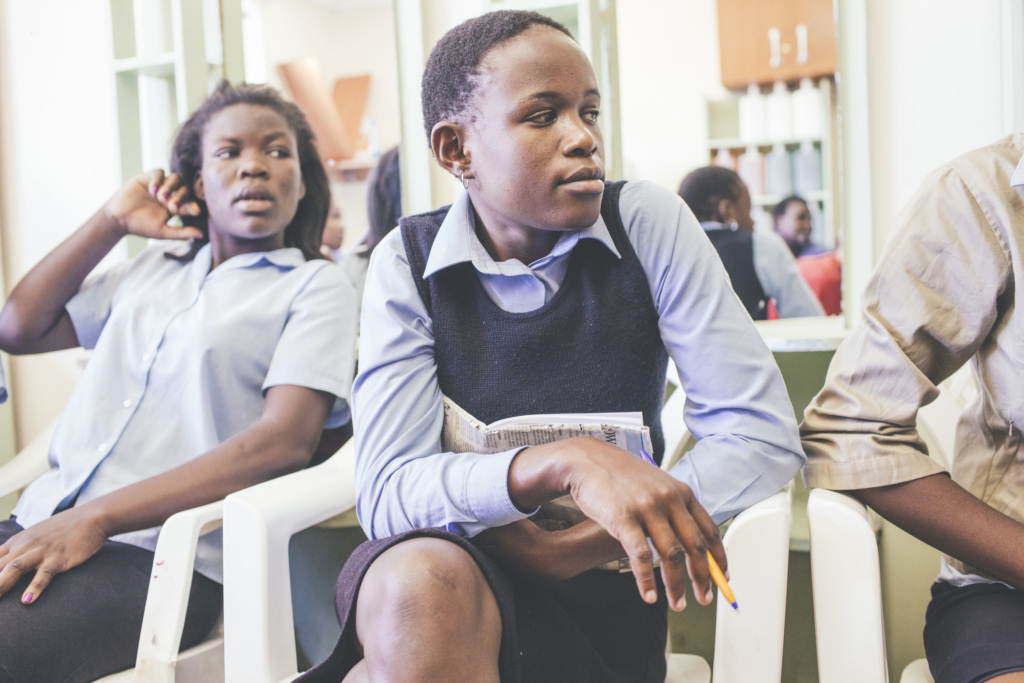Global Financing Facility: Evidence Briefs

Last week, the White House introduced a new initiative, Let Girls Learn. The initiative, spearheaded by First Lady Michelle Obama, seeks to keep girls in school.
Girls’ education is vital to international development. And there are few, at least in the United States, who would not support the idea that women have as much right to education as men. In other countries, however, girls education is not always a priority. Sometimes, it’s not even possible. Prohibitive school fees or distance to school, unsafe school spaces, early marriage, and entrenched gender inequality are all reasons girls around the world don’t get the education they deserve.
As a Peace Corps volunteer in a small village in Morocco, I saw most of these reasons play out in one way or another. As a single woman in her 20s living on her own, I was out of place in the village social structure. While the married women nurtured and fed me, it was a gaggle of teenage girls who quickly adopted me and taught me the ways of village life. Most of these girls were not in school. There was a school in the village that went up to 8th grade, but to go any further the girls would have to travel. In most cases, either the parents couldn’t afford it, didn’t believe in it, or needed the girls to help run the household and take care of the younger children. While none of my new teenage clique was yet married, it was on the horizon. One day, they excitedly ushered me to a local house to see a bride. The bride, it turned out, was their friend of about the same age. She too, of course, was not in school.

To me, this girl looked extremely nervous under her red veil and wedding adornments. But my teenage friends took it all in stride. They were used to it—girls pulled out of school, getting married, having babies and running a household. They were exactly the type of girls who need the Let Girls Learn Initiative.
These girls were something else, too. Teenagers. At a moment’s notice—during the long walk to get water, washing clothes in the river, or sitting around having tea—these girls would launch into dramatic reenactment of the steamy love story of Antonio and Rosa, the stars of the dubbed Venezuelan soap opera they watched every night. They reveled in the romantic tension, and even though kissing scenes had been censored, my teenage friends knew that all the sexual subtext in the soap opera led to not just kisses, but more than kisses. And they were curious about all of it.
I recount that story not to intimate that all teenage girls everywhere are boy crazy, but because I didn’t hear anything about adolescent sexual and reproductive health in Let Girls Learn. And it’s frustrating that, with such a terrific initiative, that the White House took the safe road by leaving out such a crucial component to keep girls in school. Young women and girls who experience unintended pregnancies are less likely to finish their education and are only half as likely as adult mothers to earn a salary.
These early pregnancies come with risks. Girls between the ages of 15 and 19 are twice as likely as older women to die from pregnancy-related causes. In fact, complications from pregnancy are the second leading cause of death from girls in this age range.
In much of the world, young people lack sources of reliable, unbiased information about their sexual and reproductive health and rights. Comprehensive sexuality education empowers young people to adopt safer behaviors. It also helps lower the incidence of unplanned pregnancies, reduces the spread of STIs, and empowers them to make decisions about their own lives.
I’m excited that a program to keep girls in school will not only improve the lives of individual girls, but will benefit everyone by giving us more great thinkers and good citizens. And the decision to have Peace Corps volunteers lead the charge is brilliant. But if this program is about expanding girls’ choices through education, then let’s not forget to educate them about one of the most fundamental rights of every woman and girl—when and if to have children of her own.
We are fighting back against the onslaught of harmful policies that discard reproductive rights.
Stay informed about the issues impacting sexual and reproductive health and rights.
